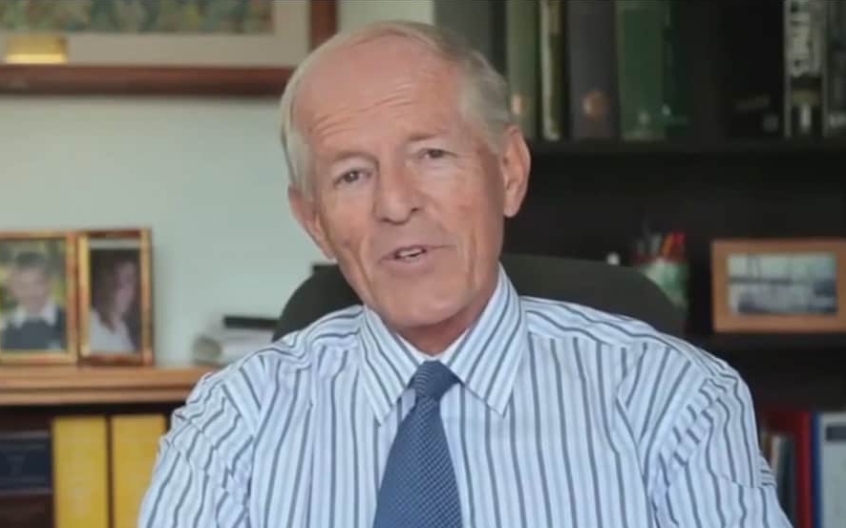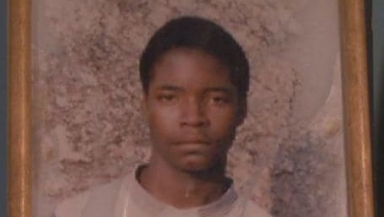
A Christian youth camp leader described by the Archbishop of Canterbury as "charming and delightful" has faced police charges of killing a teenager in Zimbabwe.
Guide Nyacharu was found dead in a swimming pool at a Christian youth camp run by John Smyth QC.
The revelation will be broadcast this evening by Channel 4 News. It is the latest in the unfolding story of the so-called "Bash camps" where elite young evangelical Christians were sent if they were deemed to have potential as future leaders in the Church of England.
Smyth, now 75 and living in South Africa where he campaigns on morality, was the head of a Christian charity, the Iwerne Trust, when he ran the holiday camps. The young Justin Welby was among the Christian young men who attended the camps.
According to allegations broadcast last night on Channel 4 News, Smyth persuaded boys to allow themselves to be subjected to "discipline", to strip naked and endure harsh beatings to "help you become holy", according to one victim Mark Stibbe. The beatings were administered to purge the boys of "sins" such as masturbation.
It is not claimed that any abuse took place at the camps themselves.
Stibbe said: "He made me strip off my clothes and he got out a cane and started to beat me. He said, 'This is the discipline that God likes, it's what's going to help you become holy'."
Another alleged victim, Richard Gittins, said: "The bottom bled. We used to have to wear nappies."
Although the Church of England was made aware of the abuse in 1982 after one Cambridge university student attempted suicide, it failed to report it to the police, the Channel 4 investigation found.
Hampshire Police yesterday launched an investigation into the claims about the UK camps.
Smyth moved to Zimbabwe in 1984 after the abuse claims emerged. He founded Zambesi Ministries which also ran youth camps for young Christian men.
The second programme in the Channel 4 News series tonight reveals that Guide Nyacharu, 16, was found dead in a swimming pool at one of the camps that Smyth ran in Zimbabwe. Nyacharu's sister Edith tells the programme her brother would still be alive today had Smyth faced justice in the UK.
According to tonight's programme, Smyth was also accused of swimming naked with teens in Zimbabwe, taking nude showers with them and encouraging them to talk about masturbation.
He was charged with culpable homicide and with injuring the dignity of five other boys who said they had been beaten savagely.
Court documents from the time state: "The particular allegations are that [Smyth] made the complainants walk naked to the swimming pool at night; that he took showers with them in the nude; that he talked to them about masturbation and told them to be proud of their 'dicks'; as Jesus Christ had one; and that he assaulted them on their 'rear bare buttocks' with a table tennis bat."
The case against Smyth was dismissed in 1998 after he argued that prosecutors overstated the claims and failed to follow proper procedures.
Approached by Cathy Newman, for Channel 4, Smyth said Nyachuru's death was "a very unfortunate drowning incident". He also said he did not leave Britain because of the abuse claims but because "God called us to Zimbabwe".
Archbishop of Canterbury Justin Welby, a former friend of Smyth, pledged to co-operate fully with the police investigation and offered an "unreserved and unequivocal" apology. He insisted he had "never heard anything at all" about the abuse claims, and had never encountered beatings in his religious life.
In 1982 the Iwerne Trust commissioned a report into the claims. The report was done by Mark Ruston, of the Round Church in Cambridge, a good friend of the Archbishop with whom he lodged during the late '70s in his final year at university. A second friend of the Archbishop, David Fletcher, also a clergyman, was the Iwerne trustee who led the investigation into the allegations.

Fletcher decided not to pass the claims to police. He said: "My top priority was that John Smyth should be stopped and second that the men he beat were cared for."
The 1982 report states the boys were given beatings of 100 strokes as punishment for masturbation and 400 for the sin of pride. One boy was given 800 lashes. Eight boys received 14,000 lashes in total, with two receiving 8,000 strokes in total over three years.
One boy said, according to Channel 4: "I could feel the blood spattering on my legs". Another said, "I fainted sometime after a severe beating". One said: "I was bleeding for three-and-a-half weeks."
Smyth is alleged to have kissed the necks of the naked boys after beating them and to have recited Bible verses about the virtues of punishment.
A spokesman for the Archbishop said he had not seen Fletcher more than once or twice casually since the late 1980s.
Channel 4 spent six months investigating the claims.
Graham Tilby, the Church of England's national safeguarding adviser, said last night: "The report into these horrific activities, drawn up by those linked with the Iwerne Trust, should have been forwarded to the police at the time. Clearly more could have been done at the time to look further into the case."
Archbishop Welby said he worked at The Iwerne camps but left England to work abroad for five years in 1978. He said he was "completely unaware" of any abuse.
Welbu was first informed of allegations in 2013 after the Bishop of Ely was contacted by an alleged victim. Welby said he had ensured the police had been "contacted immediately".
A statement said: "The Archbishop of Canterbury was a dormitory officer at Iwerne holiday camp in the late Seventies, where boys from public schools learnt to develop life as Christians. John Smyth was one of the main leaders at the camp and although the Archbishop worked with him, he was not part of the inner circle of friends; no one discussed allegations of abuse by John Smyth with him."
The statement also said: "We recognise that many institutions fail catastrophically, but the Church is meant to hold itself to a far, far higher standard and we have failed terribly. For that the Archbishop apologises unequivocally and unreservedly to all survivors."
Winchester College, where some of the boys were pupils, denied a cover-up and insisted the college authorities did their best "in accordance with the standards of the time". The college is in touch with the police and will help with any investigation.













